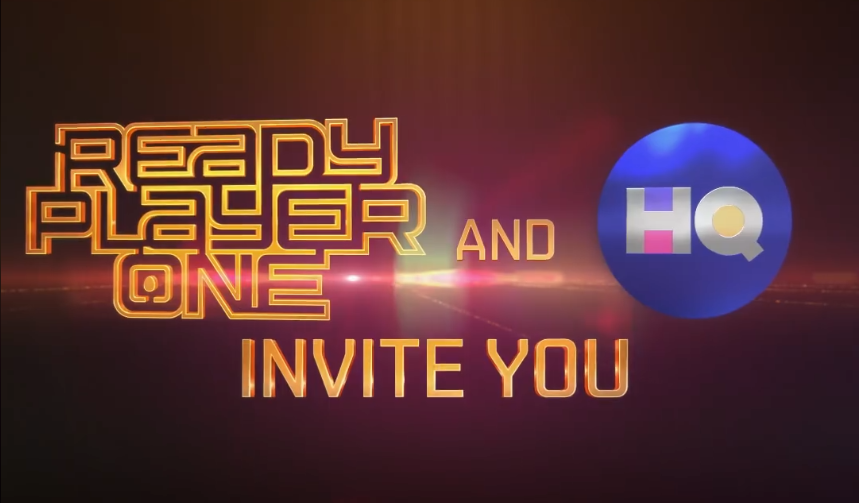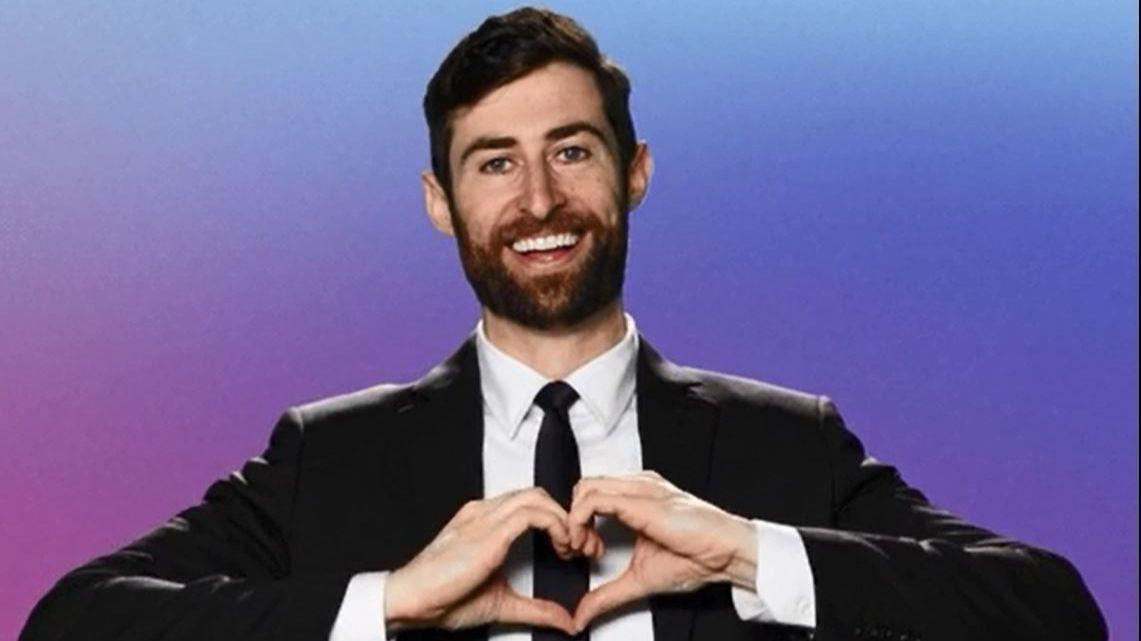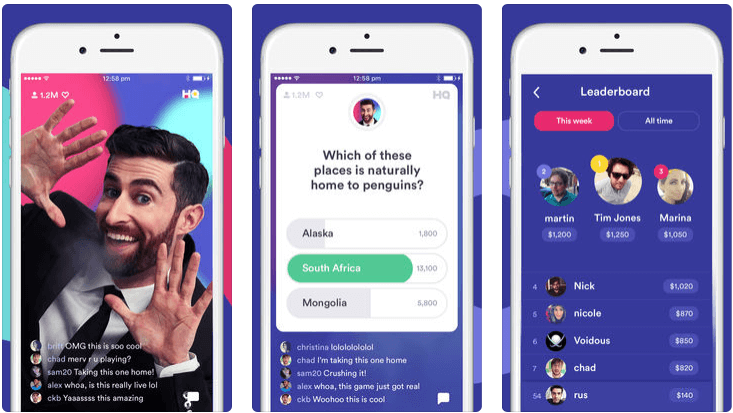On 28th March 2018, just before 9 pm ET, 2.38 million players held their breaths. They were logged on to HQ Trivia, a quiz app, where host Scott Rogowsky announced the jackpot of $250,000 that would be split among winners.
Players huddled around their phone screens aiming to get the 12 increasingly difficult multiple-choice questions posed by the game right. They would get three options and 10 seconds to answer each of them, and if answered correctly, they would move on to the next question. Answered wrong, they would be eliminated.
While typical questions on HQ Trivia cover literature, science, sports, pop culture, among other topics, this game was going to be different. It would be based on the book and movie version of Ready Player One as a part of the startup’s $3 million deal with Warner Bros. to promote its three upcoming movies – Steven Spielberg’s Ready Player One being the first.

PC: DigitalAddictsBlog
As the game began, it became obvious that its questions were generously altered to fit details about the movie and Spielberg. This meant that those who hadn’t paid attention to the sponsor started to get eliminated. The questions included, “In the Spielberg film ‘E.T.’ what does E.T. stand for?,” and, “In the book Ready Player One, the hero’s spacecraft is named after the author of what novel?” It was the second question that, according to Inverse, slimmed the pool of players. A staggering 203,210 answered it incorrectly and proved, among other truths, that people really don’t read novels. At the end of the game, Ringer counted 21 explicit mentions of the film, excluding the obvious references.
Game Begins
Despite HQ Trivia’s sudden submission to making a quiz game entirely about a sponsor, its popularity (or the jackpot money) hasn’t dipped. Less than two weeks later on April 11, HQ’s second partnership with Warner Bros. was implemented through the promotion of Dwayne “The Rock” Johnson’s movie Rampage where it gave away $300,000 – their largest prize to date.
In fact, neither the sponsorship by Warner Bros. nor a previous sponsorship by Nike has affected the startup as much as its funding by Peter Thiel. Once it was announced that Peter Thiel’s Founder Fund would be investing $15 million in HQ Trivia, Twitter exploded with unhappy, displeased fans ready to uninstall the app and asking others to do the same with #DeleteHQ.
While people’s apprehensions about using the app without knowing where the prize money was coming from have eased after its stream of corporate sponsors, another pertinent question is when will the technical glitches in the app, that have won Rogowsky the nickname of lag daddy, end. Rogowsky is also HQ Trivia’s posterboy, recurring host and recipient of catapulting success and recognition since the app went viral.

Scott Rogowsky (PC: Baltimore Sun)
However, whether faddish or not, HQ Trivia already has a valuation of $100m and is chasing another round of funding. Since its launch in October last year – with a few hundred bucks for prizes and fewer users – the app has accumulated 1 million downloads and its prize money has been quadrupling.
An ode to the game’s popularity is the fact that Jimmy Kimmel, Robert De Niro and Dwayne Johnson have hosted the quiz alongside Rogowsky. Even Kimmel’s aunt has played the game. She lost and called the game ‘bulls*it’ but other winners have shot ecstatic videos of them screaming, leaping, and dancing after winning paltry amounts of money.
Typically, victorious players receive between $10 and $14 after the prize money is split but the winners are not as many on all days. Like on Christmas Eve 2017, Casey Donahue was one of the two people who won $6000 of the $12000 jackpot in the 9 pm round on HQ Trivia. Back then, it was the largest individual cash prize since the game’s launch, now five people have won over $25,000 and 12 have won over $20,000. The app has also started a “1 Winner Takes All” format where the host keeps asking questions till only one player remains to claim the entire prize.

PC: HQTrivia
While money is a great incentive, the success of HQ Trivia is not only because of its prize money but also because of the magnetic pull well-designed quiz games have on people. Historically attractive and successful, quiz shows monetize the nervous excitement and exhilaration that people feel while answering the questions. This New York-based game app also benefits from being the first app to ape the live TV quiz show concept and make it participatory through smartphones. Naturally, the game has become a source of both entertainment and digital stardom for thousands of loyal players.
Megaminds
Behind the New York-based startup are cofounders Rus Yusupov and Colin Kroll who previously founded the short-form video hosting service Vine that was later acquired by Twitter. Their company, Intermedia Labs, is HQ Trivia’s parent company which first experimented with an interactive live-streaming video app, Hype and a remix app, Bounce.
Now with HQ Trivia, Yusupov hopes to “build the future of TV” and reintroduce habits like catching your favourite show at a particular time – only now with smartphones. While the media has likened HQ Trivia to a dystopia, Yusupov told Rolling Stone that, “It’s (HQ Trivia) about shared moments with the people you know and love and hang out with every day.” The group chat at the bottom of the app, which becomes increasingly chaotic, is the internet’s example of a shared moment. But HQ Trivia’s most social feature is its referral code. If your friends use your referral code in the app, you get an extra life – or a second chance in the game.
But Yusupov is right. The app can achieve a sense of community that – like a group of people watching TV – comes with a group of people staring at their smartphone screen.
Subscribe to our newsletter



